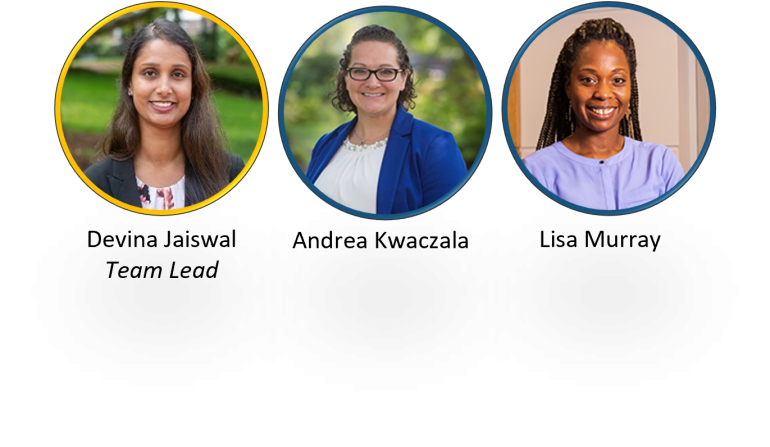ASEE’s EOP-MGP funds teams of educators pursuing new approaches to integrating sustainability into curricula. In May 2023, ASEE announced the 14 faculty teams that were awarded EOP mini-grants for Cohort II. Combined with the inaugural cohort, ASEE would like to thank the 27 teams dedicated to supporting sustainability in engineering education.
EOP recognizes the importance of including people from historically marginalized and low-income communities who are disproportionately negatively affected by climate and environmental degradation as partners in creating change. As such, a key goal of the EOP-MGP is to engage and elevate diverse faculty and institutions. Six of the 14 grants were awarded to Minority-Serving Institutions as follows: three Hispanic-Serving Institutions, one Historically Black College and University, and two Asian American and Native American Pacific Islander-Serving Institutions.
Kettering University, Susan Farhat – View Team Poster
“Within the past five years, Kettering University has made an effort to integrate sustainability into engineering education, most recently by creating a new minor in Sustainability. The goals of this project are to introduce all students to sustainability concepts using the EOP framework through the integration of course modules and case studies in freshman and sophomore courses and to develop an upper-level engineering course which will be a part of the new minor. Additionally, it is crucial that the proposed curriculum builds students’ awareness that sustainability and DEJI issues are connected. We hope to equip students with awareness of DEJI issues, the ability to recognize the lack of DEJI in engineering workplaces, and mindsets to both advocate for and integrate DEJI into conceptual and collaborative processes. Our goal is that all Kettering students be impacted by a visible and more cohesive integration of sustainability education across campus. It is more likely that students will choose to enhance their education with a minor in Sustainability after being introduced to sustainability as a multi-faceted concept early in their education.”
Kettering University Team
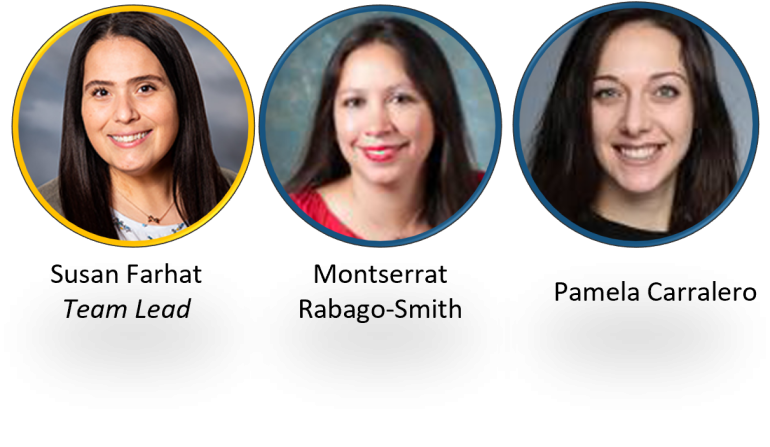
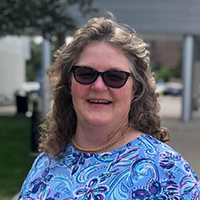 Lawrence Technological University, Elin Jensen – View Team Poster
Lawrence Technological University, Elin Jensen – View Team Poster
“Lawrence Technological University will integrate the EOP Framework as a vertical model (Concepts introduced at the FR level, reinforced at the JR level and emphasized at the SR level incl. capstone project) integrating instructional changes directly aligned to the EOP Framework. Currently, topics are covered, but not consistently throughout each course and not as a cohesively sequential holistic and interdisciplinary curriculum. Success will encompass inclusion of all EOP Framework topics and associated core learning outcomes. As a result, the development of sustainability action plans designing sustainable built environments will become intuitive for our students and carry forward in their professional careers, and as change leaders in communities where they live. For project success, we recognize that it is imperative to engage the entire faculty and key stakeholders to ensure inclusion of the DEIJ concepts. Personally, the concept of sustainability applies to all engineered systems and sustainability is an integral societal necessity. It is critical to develop engineering students who can and will incorporate sustainability. Efforts align with College of Engineering’s mission.”
Manhattan College, Qian Wang – View Team Poster
“In this project, the diverse team of eight full-time faculty members in six different subdisciplines of civil and environmental engineering (CEE) at Manhattan College will apply a systematic approach for magnifying sustainability in the CEE curriculum using the Engineering for One Planet (EOP) Framework. The EOP sustainability elements will be integrated and infused into multiple CEE courses at different levels. The project team will work closely with the project director and mentors to develop and implement mapped learning objectives, activities, and assessments to each participating course based on a system-thinking approach. Integrated teaching components, such as course modules, homework assignments, and projects, will be developed based on the EOP Framework. The systematic training approach will impact hundreds of students and provide a long-lasting impact to students’ overall ability to learn sustainability and apply sustainability in engineering applications. The broader impacts of the ASEE EOP Mini-Grant will be seen in a number of activities at Manhattan College including curriculum improvement, training of students, and dissemination of research results.“
Manhattan College Team
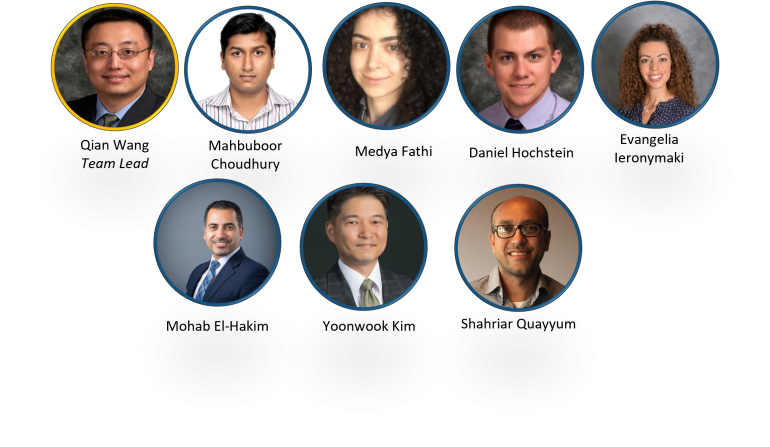
North Carolina A&T State University, Nelson A. Granda Marulanda – View Team Poster
“The project revolves around the opportunity to include deliberate and targeted learning of sustainability concepts in the Project-Based Learning sequence of interdisciplinary courses offered at NCAT. We plan to involve faculty via a workshop to introduce them to the EOP framework and develop modules for their classes. We will use the EOP Framework and the Backwards Course Design method to create teaching modules, one for each of the introductory courses of the PBL sequence. These modules should be able to be self-contained, cover at least one learning outcome from each of the three EOP framework categories, and will include an activity teaching guide for the instructor. The workshop will have a dual purpose: to develop the modules and to empower the participants to use the EOP framework in different courses.“
NC A&T State Team

New York University, Ingrid Paredes – View Team Poster
“Educating engineers to recognize the relationship between science and society is essential to equitably address the climate crisis. At NYU Tandon School of Engineering, our long-term goal is to integrate sustainability into every aspect of our curricula, so that each of our students graduates with the knowledge and tools required to address climate change and promote sustainability in any career path they pursue. We will begin by using grant funding to establish a sustainable engineering learning laboratory at NYU Tandon School of Engineering. In a multi-day workshop, our team of faculty – spanning our first-year core courses of expository writing, engineering and design, physics and math – will convene to draft lessons, assignments and pedagogy designed to educate and engage first year Tandon students in sustainability and climate change.“
NYU Team
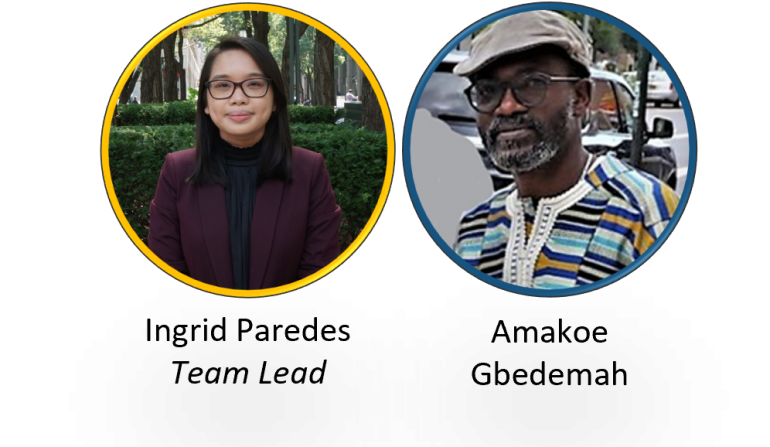
 Oakland University, Sarah Beetham – View Team Poster
Oakland University, Sarah Beetham – View Team Poster
“Our initiative aims to integrate sustainability principles into our existing engineering curriculum and extend sustainability engineering concepts to non-engineering students. To carry this out, we will use a three-pronged approach, guided by the EOP framework. First, we will develop two new courses focused on sustainability. One of these courses will be a capstone design course that will help students to put sustainability concepts to practice. Second, we will establish a Minor in Sustainable Engineering and a Master of Science degree in Sustainable Energy Engineering. The minor will be open to both engineering and non-engineering students and will span a broad set of courses aligned with the EOP framework. We believe that these two programs will substantially increase our reach to a more diverse population of students, particularly those outside of engineering. Finally, we will reimagine existing laboratory curriculum to undergraduate engineering coursework to emphasize sustainability concepts. A particular focus will be given to laboratory curriculum in our engineering ‘core’ courses—a set of courses that are required for all engineering students at Oakland University.“
Purdue University Northwest, Aref Yadollahi and Kimia Mortezaei – View Team Poster
“The study and practice of mechanical and civil engineering demand improved methods that align with sustainable principles. This project aims to leverage the unique capabilities of additive manufacturing (AM), commonly referred to as 3D printing, to reinforce the focus on sustainability in engineering courses. Particularly, the Elementary Engineering Design course, offered by the College of Engineering and Sciences at Purdue University Northwest, will be redesigned in accordance with the Engineering for One Planet (EOP) Framework to include sustainability, justice, equity, diversity, and inclusion at its core. Even small sustainable practices can have significant long-term impacts. Through this curriculum revision, students will gain an introduction to sustainable engineering principles and practices, equipping them to serve as sustainability advocates in their future careers. The project’s objective is to augment students’ sustainability development competencies, making them better equipped to address sustainability challenges in their future workplaces.“
Purdue University NW Team
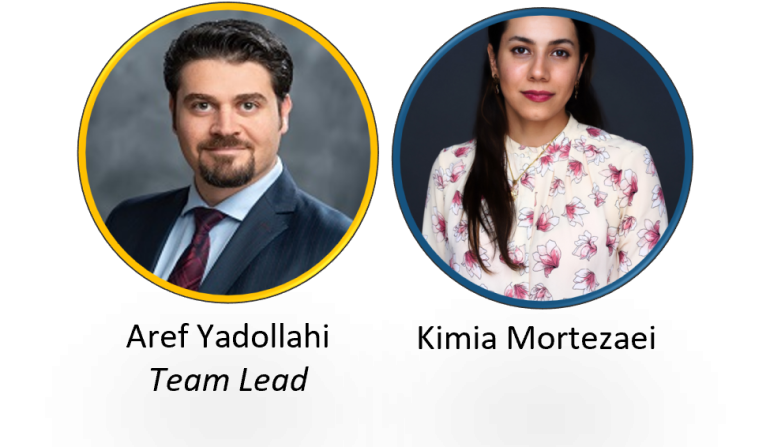
 Texas A&M University-Corpus Christie, Mehrube “Ruby” Mehrubeoglu – View Team Poster
Texas A&M University-Corpus Christie, Mehrube “Ruby” Mehrubeoglu – View Team Poster
“The project involves developing and incorporating sustainability concepts to three courses: Project Management and Capstone Projects courses serve as sequential senior engineering design courses. Special Topics: AI in Engineering and Science Applications will be offered for the first time in fall 2023 as a tech elective for engineering students. The project will require a high-performance computer for the AI course as this course requires the analysis of big data (signals, images, videos, etc.). The computer will be used to generate course material, assignments, hands-on programming exercises, and class projects. These will probe students for critical thinking about sustainability of their engineering solutions, global impacts, in both hardware and software, as well as importance of being inclusive in engineering design. Students will demonstrate understanding and incorporating diversity in their AI programming and will analyze the implementation (or lack) of such in existing systems. Dr. P. Rangel will be assisting with student mentoring in capstone projects by sponsoring a team and incorporating sustainability, diversity and social awareness in the student project.“
Texas Tech University, Paul Egan – View Team Poster
“Sustainability is a complex and multi-faceted subject that focuses on the continued health of our planet. In engineering design, sustainability may be viewed as intentionally working towards understanding trade-offs for environment, economic, and social factors and then formulating strategies to systemically maximize benefits across each factor. Our team will develop Engineering One Planet (EOP) teaching modules to integrate into two engineering classes with strong innovation components. Leadership at our University is excited for the prospect of distributing the teaching modules created during this program with faculty across the Engineering College, so state-of-the-art sustainability teachings may be delivered regularly across disciplines. We also plan to share lessons with the startup ecosystem in Lubbock by teaching the EOP framework at Texas Tech’s Innovation Hub to budding entrepreneurs, thus inspiring innovations to sustainably impact the planet during new products and services design. This bottom-up approach facilitates inclusive excellence by empowering students from all demographics to generate ideas and implement solutions to support a more sustainable future.“
Texas Tech University Team
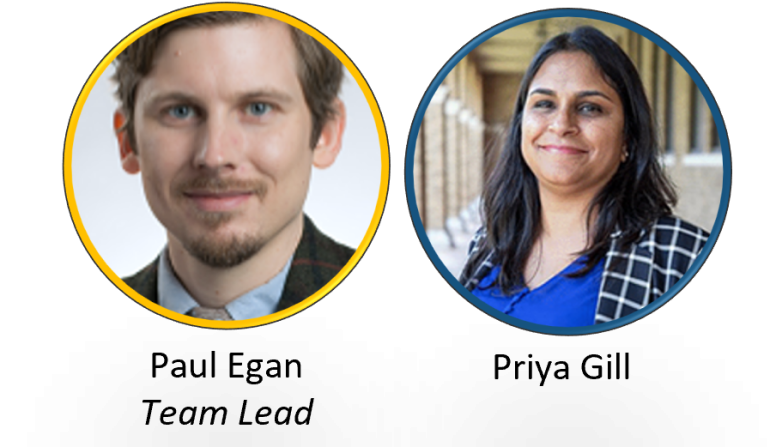
The Ohio State University, Cherish C. Vance – View Team Poster
“To catalyze curricular transformation, we propose the creation of an Engineering for Sustainable Development specialization within the Department of Food, Agricultural and Biological Engineering that incorporates several categories and topics articulated by the EOP framework. Although OSU developed a framework to support sustainability education, engineering students do not possess formal pathways to engage with sustainability-related content, which. This content may be obtained piecemeal but is not broadly accessible to engineering students with tight degree plans. We will use the EOP framework to develop General Education courses and engineering electives that align with the OSU Sustainability theme and promote social responsibility. We aim to equip students to address complex global challenges by linking perspectives from the social sciences to critical design skills. We also strive to improve the negative perceptions often linked to the STEM fields and the lack of representation. Through instructional design and culturally responsive pedagogy, this specialization could also bolster the appeal of STEM careers, especially to minoritized students who value empathy and equity.“
The Ohio State University Team
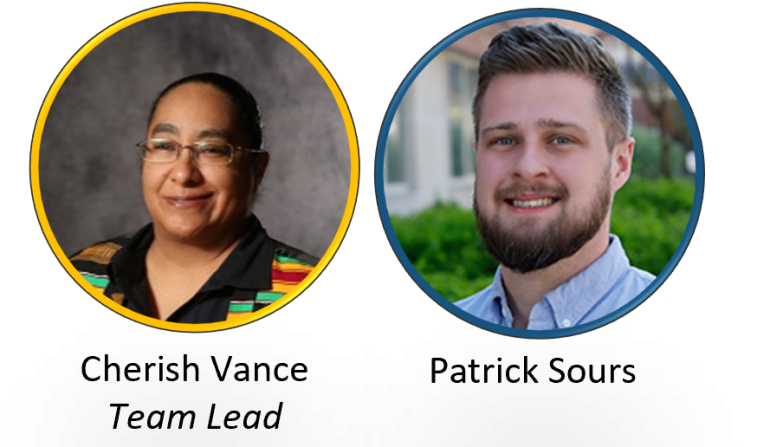
University of Colorado Boulder, Katherine Ramos – View Team Poster
“Our program, Integrated Design Engineering, coordinates the First-Year Engineering Projects (FYEP) course at CU Boulder. We will create options so that sustainability can be easily included by any instructor in the FYEP course. The FYEP course already includes elements in the Engineering One Planet (EOP) framework (design, communication, and teamwork) and we will focus on integrating systems thinking, environmental impact assessment, social responsibility, and other elements of the framework. We will create: 1) resources and lectures on elements in the EOP framework; 2) lab activities that include having students calculate their carbon footprint and assess the environmental impact of their projects; 3) design project ideas around sustainability; and 4) project evaluation rubrics that include the EOP elements. The FYEP course serves ~690 students annually and is taught by faculty across the college; thus, there is great potential impact. Our initial target is to increase the number of faculty that incorporate sustainability in FYEP by 50%. We envision that the curricular change will increase student sustainability awareness in engineering and in their everyday lives.“
University of Colorado – Boulder Team
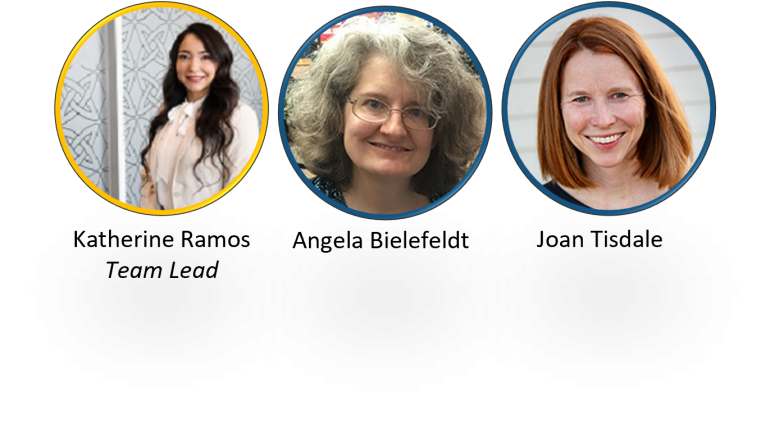
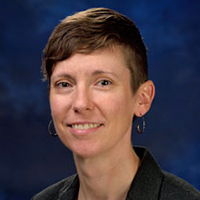 University of Pennsylvania, Dustyn Roberts – View Team Poster
University of Pennsylvania, Dustyn Roberts – View Team Poster
“The first goal of this project and the focus of this grant work for Summer and Fall 2023 is to use the EOP Framework to modify learning outcomes in MEAM 1010 Introduction to Mechanical Design, a course that I already teach every semester to classes of ~90 students. The high-level goal is to intentionally integrate sustainability into the learning objectives and assignments in the course. We make heavy use of a CAD software called SolidWorks and will utilize their sustainability add-in that performs a life cycle assessment on an assembly of parts and includes a Guide to Sustainable Design. The second goal is to leverage the EOP Framework to create learning outcomes for a new course called Bicycle Engineering & Advocacy. Over the course of the next year, I plan to develop the Bicycle Engineering & Advocacy class for a first offering in the spring of 2024. It will also be open to first year students from engineering as well as other majors. I will be working with both a local community bike shop (Neighborhood Bike Works) and a local advocacy non-profit (Bicycle Coalition of Greater Philadelphia) to integrate the volunteering and advocacy elements of the course.“
Virginia Commonwealth University, Radhika Barua – View Team Poster
“This proposal aims to develop a series of four micro-credential courses to teach concepts of Sustainable Materials Design, Green Manufacturing, Material Supply Chain Management and Circular Business Models to students affiliated with the Institute of Sustainable Energy and Environments at Virginia Commonwealth University. In keeping with the United Nations Sustainable Development Goals (SDGs), the micro-credential program responds to the demands of green transition, the rapidly changing labor market and society at large. In particular, it offers students a flexible way to supplement their degree from any discipline with research-based knowledge on sustainable development and skills, applicable within many different sectors of society. The proposed program will supplement VCU’s internal programs for undergraduate research and entrepreneurial leadership (such as the Vertically Integrated Projects (VIP) Program, the First-Generation Student Success Program and the College of Engineering Capstone Program) as it will serve as a gateway to introduce students to sustainability concepts early in their career.“
Virginia Commonwealth University Team
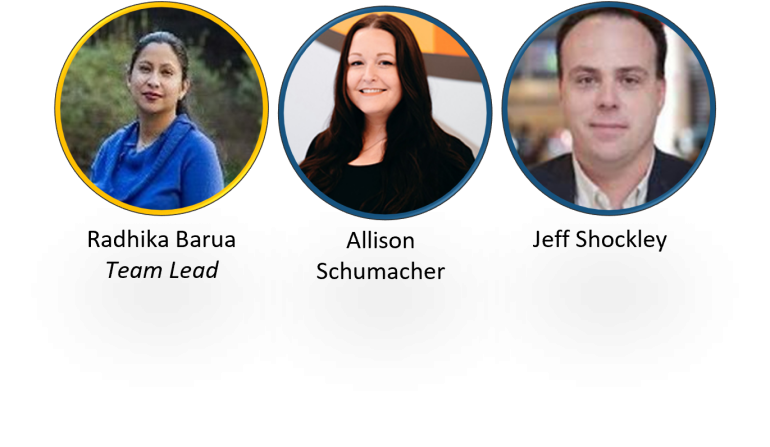
Western New England University, Devina Jaiswal – View Team Poster
“Sustainability, especially in the context of manufacturing, should be taught in a broader context towards the development of ethically responsible, globally aware engineering professionals. The purpose of this project is to focus on global impact and diversity, equity, inclusion and justice (DEIJ) in entrepreneurial minded engineering design, manufacturing and end-user considerations in the application of sustainable engineering. The curricular change would expose students (1st year through senior year of the 4-year engineering curriculum) to class modules based on sustainable manufacturing using the Engineering for One Planet framework focused on diverse communities across the globe while exploring manufacturing methods that can be implemented in low-resource countries. At the conclusion of this project, the efficacy of the class modules will be assessed by measuring systems thinking, knowledge, technical and leadership skills. Approximately 100 students will learn about sustainable and DEIJ manufacturing concepts during this work. With the success of this project, a college level systemic change will be proposed to annually influence more than 700 engineering students.”
Western New England University Team
